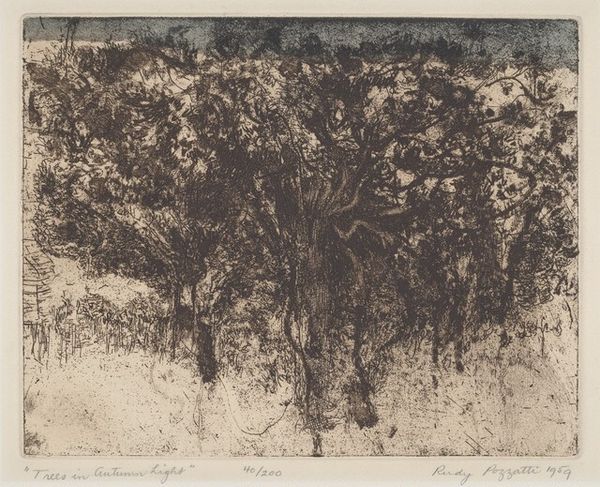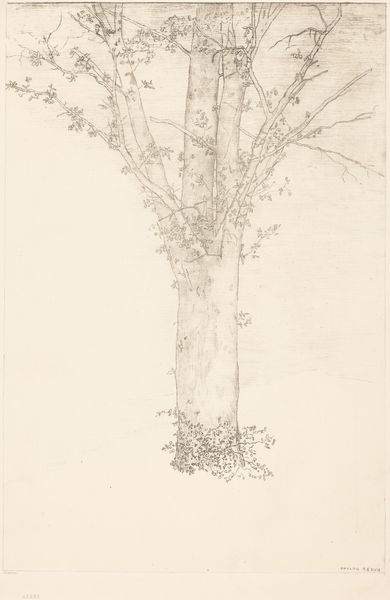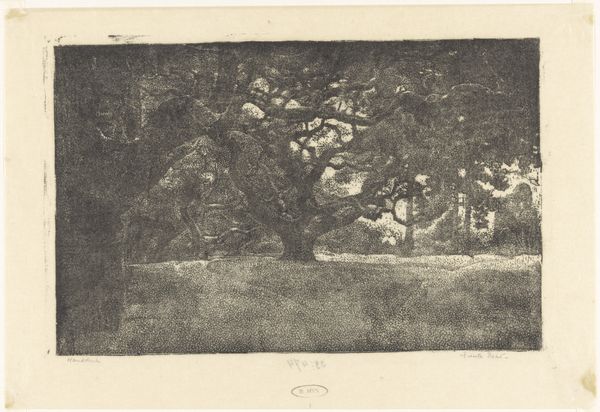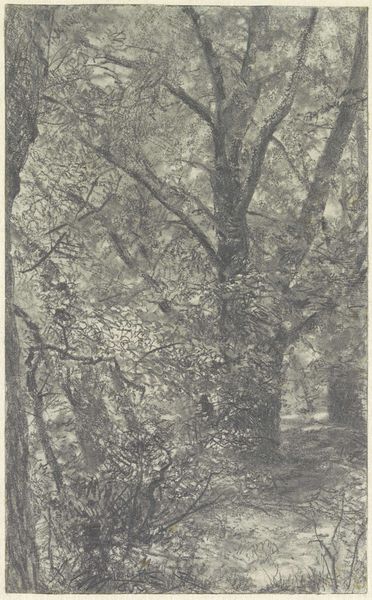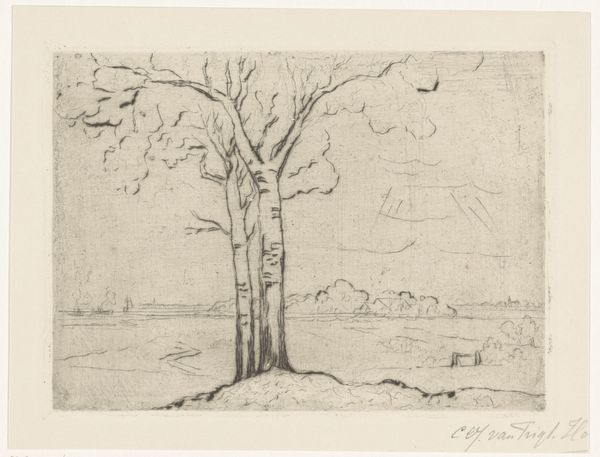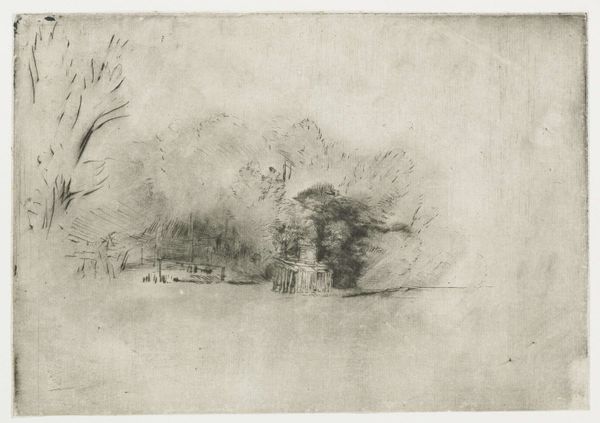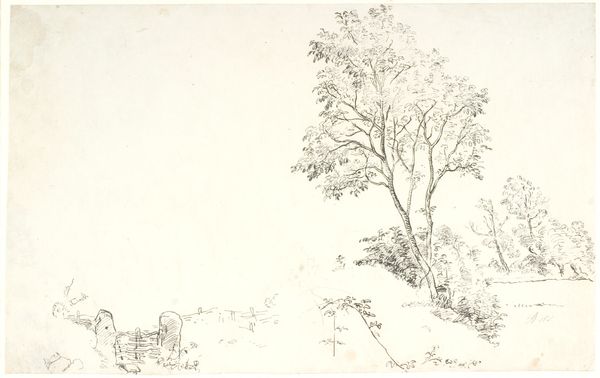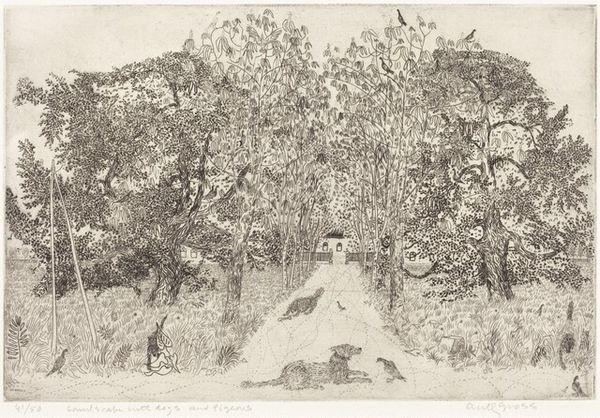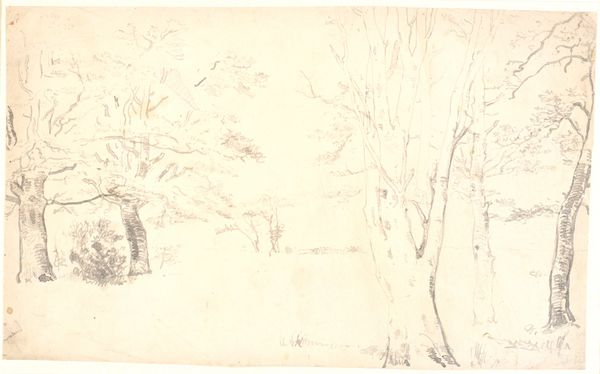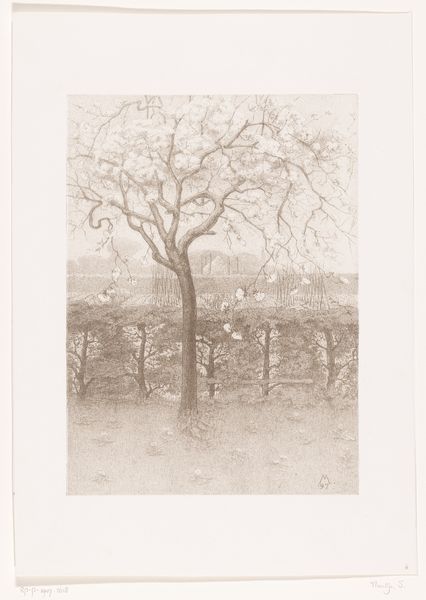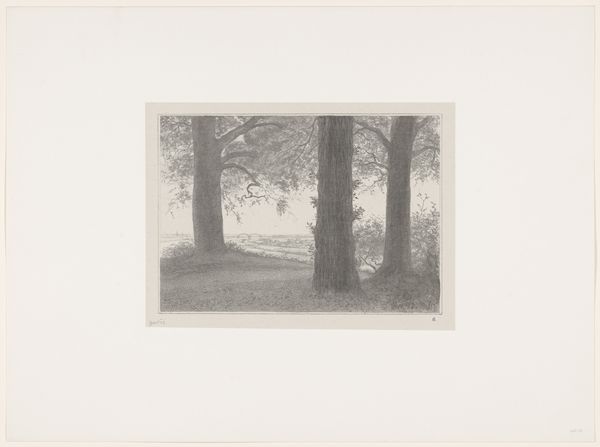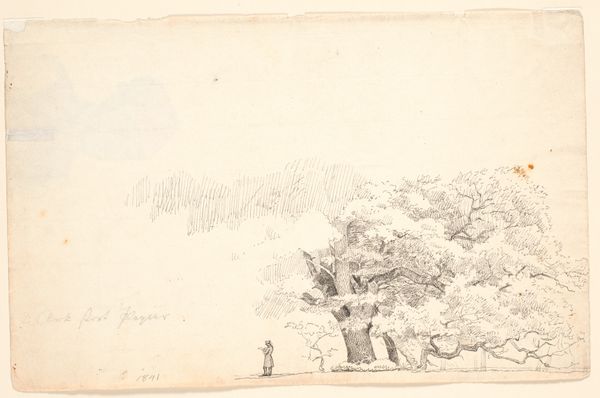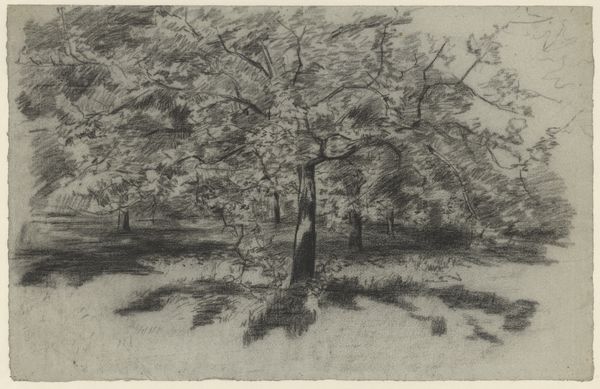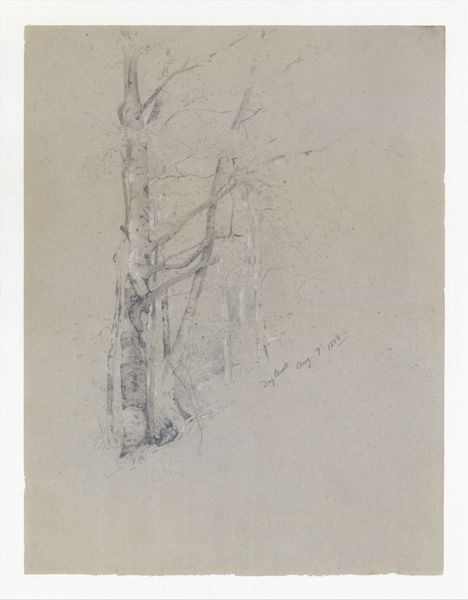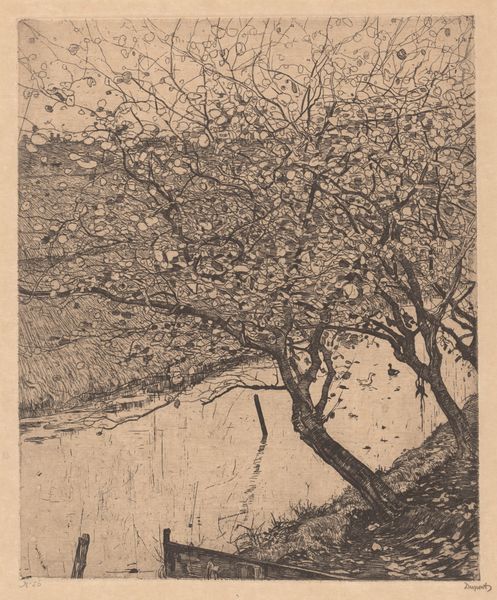
drawing, etching, paper, ink
#
drawing
#
etching
#
landscape
#
paper
#
ink
#
realism
Dimensions: height 237 mm, width 359 mm
Copyright: Rijks Museum: Open Domain
Editor: Here we have Elias Stark's "Geese by the Water," made in 1887. It's an etching in ink on paper. The stark contrast of the trees against the pale background really grabs my attention. What's your take on this work? Curator: The beauty of this piece lies, in part, in its understated commentary. The etching's medium and the chosen imagery are interesting. Here we have geese near water, evoked with simple, almost gestural lines, yet what is absent is perhaps more telling. In 1887, rapid industrialization drastically changed the Dutch landscape, particularly its waterways. Considering Stark's social position, do you think this depiction of nature—seemingly untouched, peaceful—could be interpreted as a subtle resistance against the increasing dominance of industry? Editor: That’s a great point! I hadn't considered it as a form of resistance. So you're saying the work's seeming simplicity could actually mask a deeper political message? Curator: Precisely. The artist uses realism –a direct observation of nature– to imply a certain… fragility, of the natural world, vis-à-vis unchecked "progress." How might the chosen landscape further that argument? Is there a romanticising of the natural world in this image? Editor: Definitely. Now that you mention it, there's almost a nostalgic quality to the scene. Seeing the landscape depicted this way makes me think about how art can quietly participate in broader discussions about our relationship with the environment. Curator: Absolutely, it subtly highlights how art can participate in conversations concerning human interactions with the environment and how class intersects in said interactions. I see the piece now through your engagement!
Comments
No comments
Be the first to comment and join the conversation on the ultimate creative platform.
